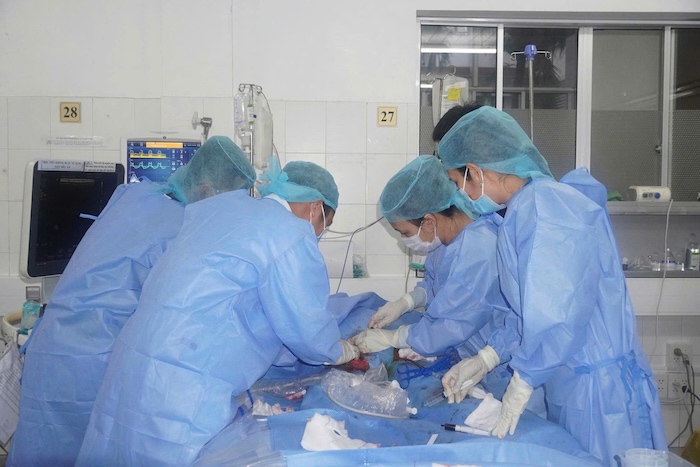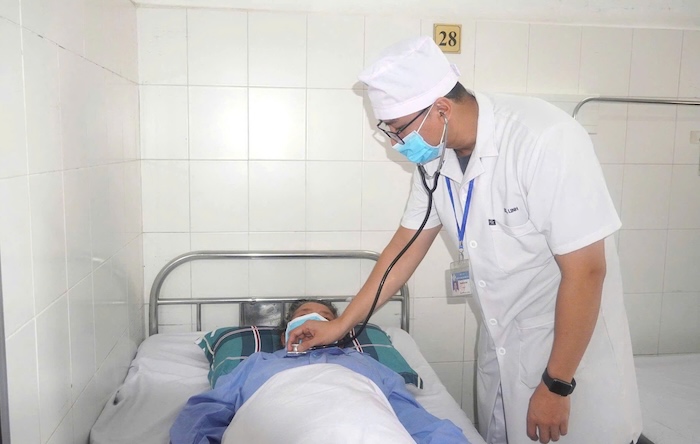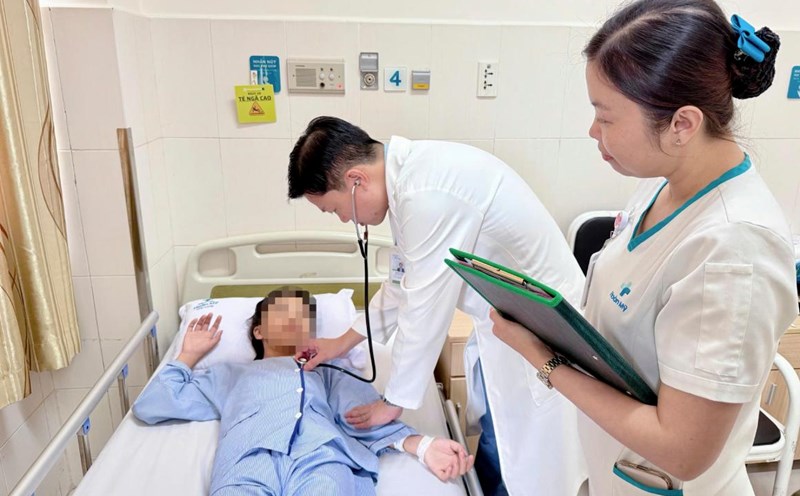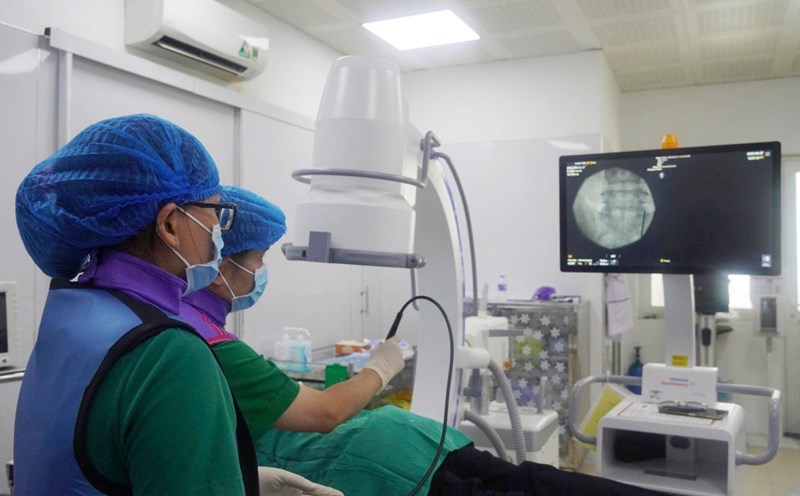On September 15, information from Can Tho Central General Hospital (CGA) said that doctors from the Intensive Care - Anti-Poison Department had just saved a patient with septic shock, pneumonia with complications of ARDS ( progressed acute respiratory failure syndrome) at a very severe level thanks to the application of Hybrid ECMO (VV-AV ECMO) technique.
Special case
Female patient N.T.L.T. (62 years old, Vinh Long province) was taken to the hospital by his family with acute respiratory failure, rapid contractility, and difficulty breathing. SpO2 index ( peripheral blood oxygenation) reached only 70%, and pulmonary edema.
The patient was transferred to the Intensive Care - Anti-Poison Department with a diagnosis of septic shock infection, pneumonia with severe ARDS complications, metastasis, pulmonary overflow, acute renal failure, acute liver failure, type 2 diabetes.
Despite timely intervention, the patient's condition quickly worsened with perception disorders and severe respiratory failure, requiring intubation and ventilation. Despite the optimal ventilation using high doses of vasopressors, the patient still did not achieve the target of blood oxidation and blood pressure, the risk of death was very high.
Doctors in the Intensive Care - Anti-Poison Department have decided to deploy the ECMO artificial heart-ellumening technique, a solution considered the "last salvation" in resuscitation. The special feature of the case is that the patient had low blood pressure despite using high doses of combined vasopressors and severe respiratory failure, so a simple ECMO regimen could not meet the requirements. Doctors have selected the ECMO Hybrid (VV-AV ECMO) - a simultaneous combination of VV-ECMO and VA-ECMO, which both supports breathing and circulation.

In other words, Hybrid ECMO is the optimal transplant solution, taking advantage of the strengths of both methods, becoming the only option to save life in complex resuscitation situations, when patients simultaneously face severe respiratory failure and severe hemorrhagic disorder.
After 6 days of applying ECMO technique, the patient's clinical condition showed clear signs of improvement. In parallel with ECMO, the patient is also coordinated with many active treatment measures such as huyet tuong replacement, continuous blood filtration, protein infusion and comprehensive nutritional support, contributing to gradually stabilizing health.
On the 8th day, the paraclinical indicators and the patient's clinical condition improved significantly. The patient was indicated to stop ECMO and continue the intensive resuscitation process.
On September 15, the patient's vital signs were stable, he was ordered to stop the ventilator, withdraw the endotracheal tube and transfer to the Department of Internal Medicine for further monitoring, treatment and care.
ECMO plays a role as a "savior"
Dr. CKII. Duong Thien Phuoc, Head of the Intensive Care - Anti-Poison Department of the hospital, informed that acute respiratory failure is a common medical condition in patients treated at intensive care units, in which pneumonia and sepsis are common causes of ARDS, a critical condition characterized by widespread pneumonia, increased absorption of the duodenal - capillary mer mermaid and reduced gas exchange.
Despite many advances in diagnosis and treatment, the mortality rate of severe ARDS pneumonia patients is still very high (over 50%). In older patients, with many underlying diseases and complications of severe septic shock, the treatment challenge becomes more severe.

ECMO acts as a savior to support life-saving replacement. ECMO (Extracorporeal Memberrane Oxygenation) is an extracorporal circulatory system to temporarily support mechanical respiratory and/or circulatory support for patients who fail conventional treatment.
The two main types of ECMO include: V - V ECMO: Taking blood out of the vein and returning blood to the vein, acting as a fake lung by exchanging O2 and CO2 through a gas exchange medium; V - A ECMO: Taking our blood from the vein and returning blood to the arteries, acting as an artificial heart pumping blood to nourish the body.
It is known that since 2021, when the COVID-19 epidemic was complicated, the Hospital successfully deployed ECMO technique for the first time with online support from experts from Cho Ray Hospital.








